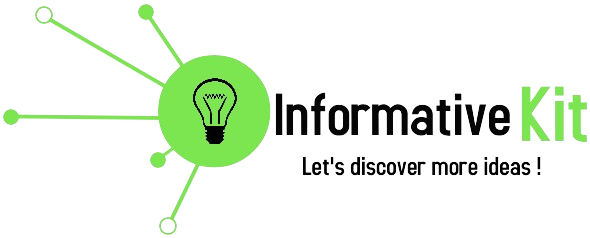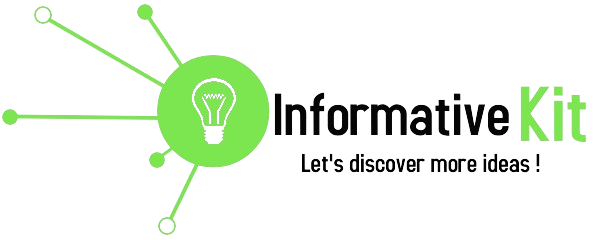Introduction
In an era where technology has revolutionized almost every aspect of our lives, the way we learn is no exception. The rise of Artificial Intelligence (AI) has brought about innovative tools that cater to our insatiable thirst for knowledge, making education more accessible and personalized than ever before. Among these tools, ChatGPT stands out as a powerful and versatile AI-driven learning companion, capable of guiding you through an expansive range of subjects. This article delves into why ChatGPT might just be the best way to learn about anything, offering insights into its capabilities, advantages, and how it can transform your learning experience.
What Is ChatGPT?
Before we dive into the specifics of how ChatGPT can aid in learning, let’s take a moment to understand what it actually is. ChatGPT is a language model developed by OpenAI, designed to generate human-like text based on the prompts it receives. It’s built on the GPT (Generative Pre-trained Transformer) architecture, which has evolved through various iterations, each improving in its ability to understand and produce coherent, contextually relevant content.
ChatGPT leverages vast amounts of text data and sophisticated algorithms to predict and generate responses that are both informative and engaging. This ability to converse on a wide array of topics, combined with its capacity to learn and adapt, makes ChatGPT an invaluable tool for learning.
Why ChatGPT Is an Effective Learning Tool
One of the most compelling reasons ChatGPT excels as a learning tool is its accessibility. Available 24/7, ChatGPT can be accessed from anywhere with an internet connection, eliminating the constraints of time and location associated with traditional learning. Whether you’re a night owl or an early riser, you can engage with ChatGPT whenever it suits you.
Moreover, ChatGPT offers a personalized learning experience. Unlike a classroom setting where the pace is set by the teacher, ChatGPT allows you to learn at your own speed. You can ask questions, seek clarification, and dive deeper into topics of interest without feeling rushed or pressured.
Learning Flexibility with ChatGPT
One of the greatest benefits of using ChatGPT is the flexibility it offers in learning. You can approach a topic from multiple angles, explore tangential subjects, or stick to the basics—all depending on your preferences. If you’re studying for an exam, you can focus on specific areas that need improvement. Alternatively, if you’re just curious about a subject, ChatGPT can guide you through a broad overview before honing in on details.
You can revisit topics as many times as needed until you feel confident in your understanding. ChatGPT also remembers your past interactions (within a session), allowing for a more continuous and cohesive learning experience.
Versatility of ChatGPT
ChatGPT’s versatility is another key reason it stands out as an educational tool. Whether you’re interested in history, science, technology, literature, or even niche topics like quantum physics or medieval architecture, ChatGPT can provide information across a vast array of disciplines. It’s like having a library, tutor, and discussion group all rolled into one.
Moreover, ChatGPT can
adapt to various formats of learning. Whether you’re seeking detailed explanations, summaries, problem-solving help, or even creative brainstorming, ChatGPT can shift gears to meet your needs. This makes it suitable not only for students but also for professionals looking to acquire new skills or delve into complex topics.
Comparing ChatGPT with Traditional Learning Methods
When comparing ChatGPT to traditional learning methods, several advantages become apparent. Traditional learning often involves textbooks, lectures, and assignments that are structured and linear. While these methods have their merits, they can sometimes lack the dynamism and interactivity needed to keep learners engaged.
ChatGPT, on the other hand, offers an interactive learning experience where you are in control of the flow. You can ask follow-up questions, request examples, or even challenge the information provided to deepen your understanding. Unlike textbooks that might take months or years to update, ChatGPT can incorporate the latest information and trends, making it a more current and relevant resource.
Additionally, while online courses provide flexibility, they are still generally structured with a set curriculum. ChatGPT offers the spontaneity of learning anything, at any time, tailored to your specific queries.
ChatGPT for Different Learning Styles
Every learner is unique, and understanding your learning style can greatly enhance the effectiveness of your educational journey. ChatGPT is well-suited to accommodate various learning styles:
Visual Learners: While ChatGPT primarily communicates through text, it can describe visual concepts in detail, helping you to visualize ideas and processes. You can ask for descriptions, comparisons, or even simple explanations that help you build mental images.
Auditory Learners: ChatGPT can be used in conjunction with text-to-speech tools, allowing auditory learners to listen to information instead of reading it. Moreover, the conversational nature of ChatGPT mimics dialogue, which can be particularly engaging for those who learn best through listening.
Kinesthetic Learners: While kinesthetic learners thrive on hands-on experiences, ChatGPT can support this by offering step-by-step instructions for physical tasks or experiments. You can ask for interactive activities or projects that allow you to apply what you’ve learned.
Enhancing Critical Thinking and Problem-Solving
One of the most valuable skills in both academic and professional settings is the ability to think critically and solve problems effectively. ChatGPT can be an excellent tool for honing these skills. By engaging in discussions, posing complex questions, and exploring different scenarios, you can develop a more nuanced understanding of various topics.
For example, you can ask ChatGPT to challenge your assumptions or present counterarguments to a position you hold. This helps to broaden your perspective and sharpen your analytical skills. Additionally, ChatGPT can assist in breaking down complex problems into manageable steps, guiding you through the process of finding solutions.
Improving Language Skills with ChatGPT
Whether you’re a native speaker looking to enhance your language skills or someone learning a new language, ChatGPT can be an invaluable resource. It can help expand your vocabulary, refine your grammar, and even practice conversation in different languages.
For instance, if you’re learning Spanish, you can have a conversation with ChatGPT in Spanish, ask it to correct your sentences, or even translate phrases to and from English. For creative writing enthusiasts, ChatGPT can assist in generating ideas, structuring narratives, or even editing drafts, making it a versatile tool for improving your writing skills.
ChatGPT in Professional Development
In today’s fast-paced world, staying updated with industry trends and continuously learning new skills is crucial for professional growth. ChatGPT can play a significant role in this aspect by providing instant access to a wealth of information relevant to your career.
Whether you’re preparing for a presentation, learning a new software tool, or keeping up with the latest developments in your field, ChatGPT can offer guidance and resources tailored to your professional needs. It can also assist in interview preparation, helping you to practice responses and improve your communication skills.
Using ChatGPT for Collaborative Learning
Learning doesn’t have to be a solitary experience. ChatGPT can be integrated into group studies and collaborative projects, acting as a facilitator for discussions and brainstorming sessions. Whether you’re working on a group project or simply sharing ideas with peers, ChatGPT can provide insights, suggest new perspectives, and help refine concepts.
This collaborative approach can enhance the learning experience, as interacting with others while using ChatGPT can lead to richer discussions and deeper understanding. It also makes learning more engaging and fun, as you can collectively explore topics and solve problems with the help of AI.
Limitations and Challenges of ChatGPT
While ChatGPT is an incredibly powerful tool, it’s important to recognize its limitations. Being an AI, ChatGPT doesn’t have personal experiences or emotions, and its responses are generated based on patterns in data rather than genuine understanding. This means that while it can provide information and insights, it might not always grasp the full context or nuance of a topic.
Additionally, ChatGPT’s knowledge is based on the information it was trained on, which has a cutoff in 2023. It may not always have the latest data or might generate content that is incorrect or biased. Therefore, it’s crucial to use critical thinking when interpreting its responses and to cross-check information from reliable sources.
Future of Learning with ChatGPT
The future of education is likely to be deeply intertwined with AI, and ChatGPT is at the forefront of this transformation. As AI continues to evolve, we can expect even more personalized and sophisticated learning experiences. Future developments could include enhanced interactivity, more accurate responses, and deeper integration with other educational tools and platforms.
The role of ChatGPT in education will likely expand, offering support not just in academic learning but also in personal development, professional growth, and lifelong learning. The potential for AI-driven education to democratize access to knowledge and provide tailored learning experiences is immense.
Tips for Maximizing Learning with ChatGPT
To get the most out of your learning experience with ChatGPT, consider the following tips:
Set Clear Learning Goals: Know what you want to achieve in each session. Whether it’s mastering a specific topic or exploring a new subject, having a clear goal will help guide your interactions.
Ask the Right Questions: The quality of the responses you get from ChatGPT depends on the questions you ask. Be specific and clear in your prompts to get more accurate and useful information.
Combine with Other Resources: While ChatGPT is a powerful tool, it’s best used in conjunction with other learning resources like textbooks, online courses, and practical experiences.
Seek Feedback: Don’t hesitate to ask ChatGPT for clarification or further explanation if you don’t understand something. This will help reinforce your learning.
Review and Reflect: After each session, take some time to review what you’ve learned and how it applies to your broader learning objectives.
Conclusion
In a world where knowledge is power, ChatGPT emerges as a formidable ally in the quest for learning. Its accessibility, versatility, and adaptability make it an excellent tool for anyone looking to expand their knowledge on virtually any subject. While it’s not a replacement for traditional education, it complements and enhances the learning experience in ways that were previously unimaginable.





